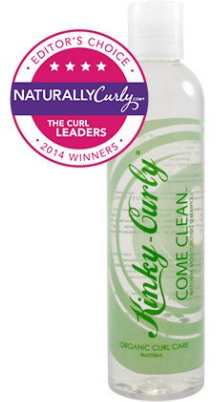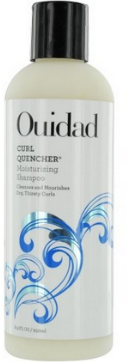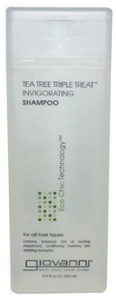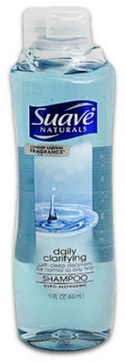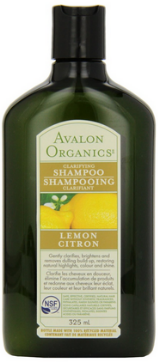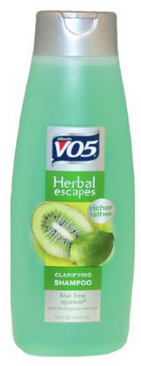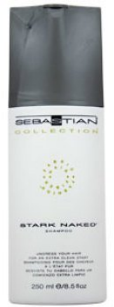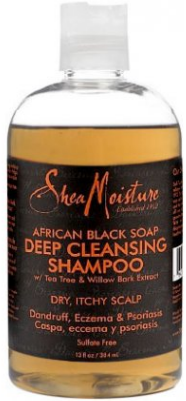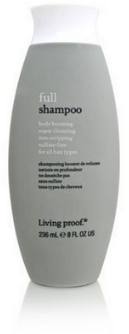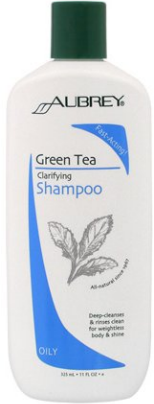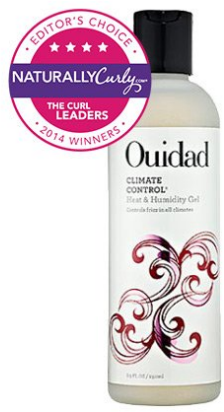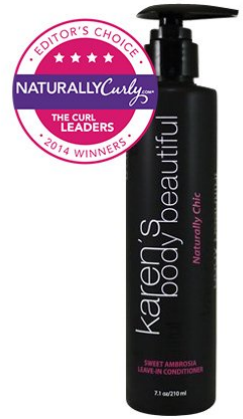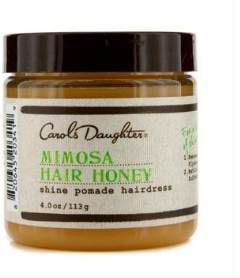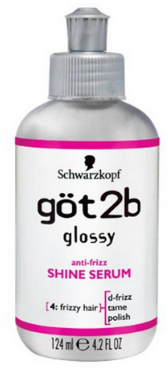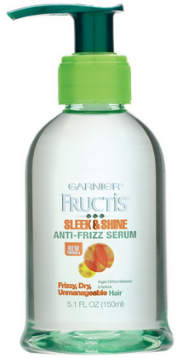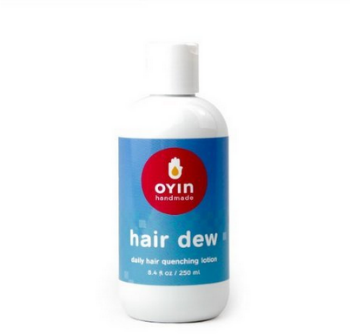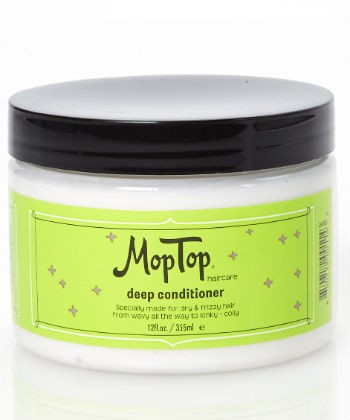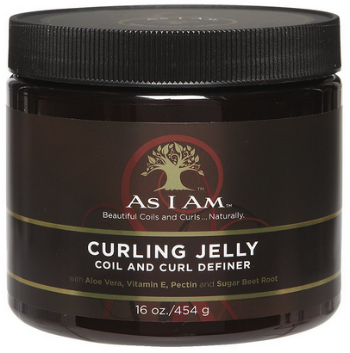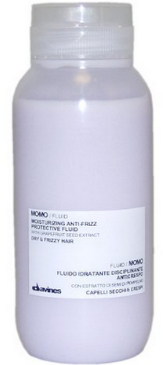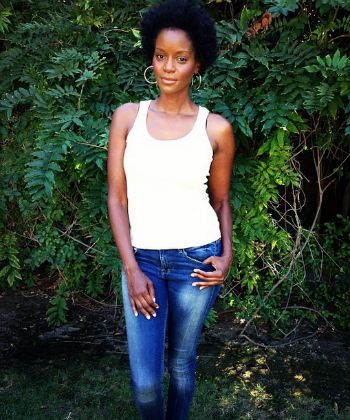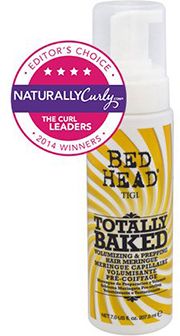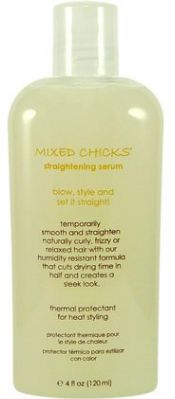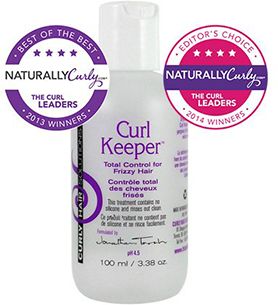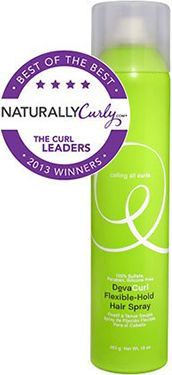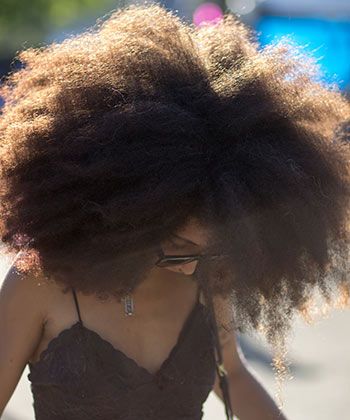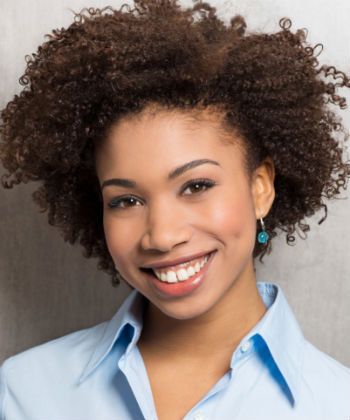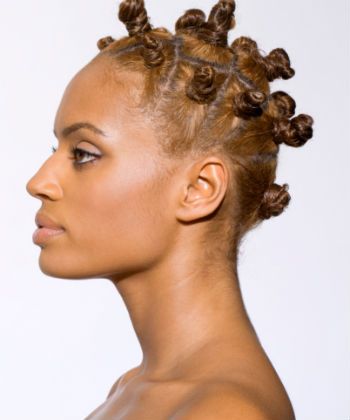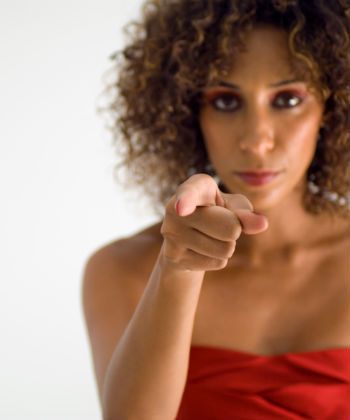Search Results: Sabrina Perkins

I ask because there are some women with naturally curly hair who only wear their hair straight…I’m talking 95% of the time. Now, I’m not trying to call them out or even label them as insecure, but what is the point of being natural if you are always altering the state of your hair? A lot of naturals hate shrinkage. Your intertwined curls and coils can be a pain to detangle and also cause you to believe that you are not retaining length. I remember when my mother asked why my hair wasn’t growing when all she had to do was pull one of my coils and she would have her answer. Our hair’s temperament can be discouraging sometimes.
I wonder if I’m asking too much of my straight styled ladies and not taking an inner peek at myself. I prefer the big, wild, out of control coils that behave instinctively to nature. I no longer wear my hair straight and no longer care if others can see my growth and length. This is my preference. Is the choice to stay straight merely a fondness for sleek hair or a lack of fully embracing their natural hair texture?
There is a push back from some that feel straight hair is more attractive and more professional, but as we embark on a natural hair revolution that is attracting the attention of the fashion world, don’t we owe it to all curlies to embrace our natural texture and flaunt it? I know that may seem extreme or potentially earn me the title of “natural hair Nazi”, but by allowing our hair to be its own we force others to accept our beauty. Our beauty is not to be diminished and watered down, and by constantly straightening our hair aren’t we just diminishing its essence?
I dance around the idea that some succumb to the pressure to fit in, but I acknowledge it may be a strong push to conform. I do not buckle under that weight, but I also have no one telling me my shrinkage is something that needs to be “corrected” or that visibly longer hair is more desirable. Even my mother didn’t understand the nature of my hair, which is very different from someone making you feel your tresses are ugly or unacceptable. I know my path is not seared with negativity which may be the reality of others.
So I ask you, the straight-haired natural: Is straight hair merely a styling option? Do you consider it to be more beautiful? Do you feel more confident with straight hair? Share your story.
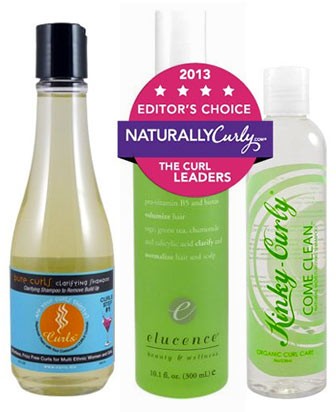
If your hair continues to feel dry after consistently applying moisturizers, oils, and styling products, it is a sign
that your curls need to be cleansed. I know it sounds backwards, but when your curls don’t seem to absorb any of the
products you are applying, clarifying shampoos are necessary to remove the severe build-up of product, dirt, and oil
in order for your strands to absorb moisture. Sometimes moisturizing shampoos or cleansing conditioners do not cleanse
effectively enough.
Clarifying shampoos should be used sparingly in a curly hair regimen, as they can dry out your hair and strip it of the necessary oils, but if you are using heavy products or notice your hair has become limp or lifeless, it may be time for a thorough cleaning. Don’t get me wrong; some curlies have eliminated shampoos because they no longer use a lot of heavy products that contain ingredients like silicones and even mineral oil. If your freshly washed hair feels sticky or coated, you should try a clarifying shampoo.
What is a clarifying shampoo?
The main ingredients in many clarifying shampoos are surfactants. Surfactants are used to remove dirt and oil from the hair. Many clarifying shampoos contain tea tree oil, peppermint oil, or eucalyptus oil for their cleansing and anti-bacterial properties that help to aid scalp conditions. Here’s our top 20 clarifying shampoos.
20 Gentle Clarifying Shampoos
Humidity is the devil to a natural. Ok, some naturals like it, but for most of us, humidity can make our hair expand and shrink to disastrous proportions.
Humidity refers to the amount of water vapor or moisture in the air. An anti-humidity product or an anti-humectant product is a moisture blocker and therefore decreases the potential for frizz and reversion if your hair is straightened.
It may seem odd since most naturals need and want hydration, but sometimes we don’t need the extra moisture that the weather can bring.
What makes anti-humectants work and what ingredients to look for
There are several components that contribute to the effectiveness of anti-humectants, but the anti-humectants that most curlies are familiar with are silicones. Silicones get a bad rap within the natural hair community, but they actually serve a valuable purpose for naturals in several ways. Most silicones are not water-soluble so they prevent the moisture in the air from penetrating your hair shaft and causing your strands to expand and contract; this helps when you do not want your twist-out, braid-outs, straight hair, and just about any stretched style to expand, shrink, and lose definition!
Other ingredients that actually fight off humidity are ester, palm oil, beeswax, and shea butter.
20 Frizz-Fighting Products
Many feel the most beautiful women in the world are fashion models. They are tall, thin, and gorgeous women who tear up the runway sporting the finest apparel that only stars can afford. They are snotty, haute, sexy, and for most of our fashion history, have predominately been white. The diversity in the fashion world is starting to increase with women of various hues showing off the most exquisite styles each season.
Despite more black women striking glamorous poses in magazines and strutting the runway, the majority of them wear long-hair wigs and tight weaves on top of chemically straightened hair. Well, here are stunning women who have backed away from the chemicals and are embracing their natural tresses.
10 Models with Natural Hair
It’s no secret that sometimes we have to work a little harder to get our curly hair to do what we want, and with events like prom and weddings approaching, and we’re here to take the worry out of your prom prep. Here are 10 products that will make your gorgeous prom ‘do stay all night!
11 Products for Lasting Prom Hairstyles
PHOTO CREDIT: MARC BAPTISTE
Nappy was never a word you wanted to hear or be associated with when I was growing up. I’m a part of Generation X, the latch-key kids, Atari players, the generation after the baby boomers. If you were born between 1965 and 1980, you are a part of Generation X.
It’s safe to say that as a black child in this generation, your hair was either pressed or relaxed. Having natural hair (or what we called nappy hair”> was unacceptable and made you an easy prey for ridicule. There was no alternative. You had to straighten your hair in some way and if your hair was not funky, fresh laid, you were bound to get teased. Negative labels were hurled from the classmates and playmates who had learned them from their mothers, aunts, and grandmothers. Nappy was not a sentimental word used to tell little girls how unique and beautiful their hair was.
Forgive me for not being politically correct, but this is my past and it’s something I never want to relive. As I continue to fall in love with my natural hair, I had long forgotten the ugliness of the word and what it meant. I forgot about being teased for my kitchen (hair at the nape”> being nappy or my new growth sticking out begging to be “tamed”. As a woman who is proud of her natural hair, the painful remnants of those memories began to resurface when younger generations started reclaiming the word nappy.
I don’t like the word. I cannot. Since everything you experience as a child is magnified from the impression of your psyche, it’s difficult to embrace a word that was originally fueled with negativity. You want me to like that word? Really? Maybe I could have embraced nappy if it wasn’t used as a tool to inflict shame and reinforce an inferior beauty complex. I understand the desire to reclaim it and repurpose it as something beautiful, but the negative sentiment is ingrained in me. I love curls, coils, and even kinks but the naps? Love the naps? Sigh I cannot and please do not judge me for that, as some words cannot be reclaimed.Take my parents for example: they are baby boomers who grew up with extremely negatively charged words that I cannot expect them to get past and accept. A word with such diversity and beauty was turned into something ugly…colored. That word means very little to me, but the word carries the memories of segregation that had a relentless chokehold on this country and minorities. For them to embrace that word would be asking too much, because it was used to symbolize and perpetuate hate so I get it…I really do. So I’m asking Generation Y, give me this pass on the word nappy because like my parents, I can’t get past it.
Love it, embrace it, nurture it, say it, and reclaim it as your own, but please do not expect me to do the same. I tried, I really did but the pain runs too deep for me to give a degrading word a new warm sentiment. I’m a Generation X kind of woman and as easily as African American can roll off the tongues of Generation Y, I feel more accustom and accepting of the word black. It’s not negative or disrespectful to me, but I am of another generation and my truth is not the same as yours. We can have dissimilar truths and still be in love with our natural hair. We can have a different pasts and still enjoy our curls and coils. We can share the word nappy, but understand and accept that it holds separate places in everyone’s hair journey.
Sabrina, founder of seriouslynatural.org and contributor to several online publications, is a freelance writer who engages her audiences on the relevance of natural hair, beauty, and style.
Do you agree with reclaiming or repurposing the word nappy? Share your thoughts and experiences!
When I first went natural I was terrified of going out into the world with my new hair. It was my own hair but there was no straightening, wig, or weave to cover my curly texture.
It was just me.
I was received with welcome arms from most, but I did notice the silent stares by others. Despite that, I can honestly say I was treated no differently. Then, I switched jobs and it was like going from day to night. My immediate supervisor (who did not hire me, by the way”> made it known that she did not like my curly/coily hair. The few times I would straighten my hair she would shower me with “ooohs” and “ahhhs” and “it’s so pretty this way.”
The last time I wore it straight to the office, she went so far to say, “it’s professional when you wear it straight and you should keep it this way.” I was stunned, infuriated, and high-tailed it to the ladies room to ruin my style with water and my spray bottle. Needless to say, it was the beginning of the end for that job and yes, there were other problems but the main problem was me not being accepted as me.
My story is far from an anomaly. I have heard of curly-haired women being told they would not be taken seriously with curly hair. I’ve also heard of students at colleges being told they would have to straighten their hair to land a job and natural-hair women being told their hair was nappy and inappropriate at work or school. It’s appalling and downright offensive since none of those instances required a particular hairstyle for those women to perform their jobs well.It’s unfortunate that some companies, professionals, or individuals feel that straight hair on a woman is considered professional. They feel that straight-hair employees will be seen as serious, job-worthy, and smarter. So, what does that say about all curly-headed employees? It says just the opposite.
Curly hair is fun, cute, fashionable, and flirty. It’s how you wear your hair for your wedding, prom, and even your gym ID. This long-standing categorization of hairstyles is an outdated one. Just as the baseless saying “blondes have more fun” needs to be retired, the negative curly-hair classification needs to disappear as well.
When it comes to afro-texture hair, women are being deemed unprofessional or even worse…intimidating and threatening. Despite how shallow and unfounded these labels are, it does not change the fact that some women are being treated unfairly due to their hair textures.
What You Can Do About It
I’m tired of the stories I read online and hear in conversations about curly-hair women who have fallen victim to scrutiny. It’s not fair and yes, I’m aware life is not fair but to value a person according to the way their hair curls has to change. Now, there are some women who fall victim to their own self-inflicted insecurities and I have personally witnessed many black women suffer from this affliction. Feeling that even stepping out of their perception of professionalism is not worth the negative backlash. Well, I say step out because if you do your job, handle your business, and are professional, not only will you excel but you will be setting an example that may reshape the perceptions of those around you.
Your hair has nothing to do with it. There are natural and curly-hair anchorwomen, judges, and attorneys. There are curly and natural-hair doctors, teachers, and civil servants. They exist and we just need to support them. Every job has an HR department so it may be time for a sit down if a curly-hair or natural-hair woman feels heat from a supervisor or co-worker about her hair. It may be a hard walk to take, but the problem is with them and not you. Don’t allow someone else’s perception of you to define you or hold you back. And don’t allow others to belittle the issue with the “it’s only hair” comment. That is precisely the point.
PHOTO POETIC LIFE PHOTOGRAPHY
The afro has come to be symbolic through history, but what does the afro mean in 2014? Does your afro make you “alternative?”
It honestly depends on whom you ask and what their personal reflection of the word ‘alternative’ symbolizes to them. Whether one is talking about a subculture of the Natural Hair Movement (NHM”> or merely a trend, there is an image that you can form in your mind on what an afro means in 2014.
An afro is defined as two things:
1″> a style where thick, curly hair erects around the head and
2″> a natural hairstyle of black people.
I prefer the New York Times’ definition when discussing Dante De Blasio’s hair during his father’s mayoral campaign in New York, “The Afro as a Natural Expression of Self.” An afro holds more significance than a hairstyle and I must admit, it means even more than the self-expression.
Sometimes words get muddled and misappropriated with usages that have no real connection and before you know it, they take on a new or expanded meanings. Today when you see a woman sporting an afro, oftentimes she is associated with the terms hipster, bohemian, or even Afro Punk. But what does that all mean? Well, it simply means the afro has transformed from its origin of self-love and freedom of expression within American history into a lifestyle and subculture.
The NHM has brought scores of black woman to a new place in their lives where beauty is no longer gauged solely by European standards. As curls, coils and waves are springing up and demanding to be admired, straight hair is no longer exclusively deemed as desirable. But embracing an afro is manifesting simultaneously with another movement where healthy living, fashion, and political thought encompasses our hair and ties to its existence.
 Ties to the Afro
Ties to the Afro
Health consciousness
With the NHM, words like ‘natural’ and ‘organic’ are being overused by beauty brands in an effort to stimulate revenue from the natural hair market.
Despite that thinly veiled attempt to milk a new cash cow, many naturals are indeed vegans or vegetarians. Many do pride themselves on healthy eating and using natural or DIY products while also embracing the minimalist lifestyle.
The NHM in effect ties into the overall whole health trend of veganism, vegetarianism, exercise and even the increasing awareness of environmental impact and reducing our carbon footprint.
Fashion
Because fashion tends to be heavily influenced by cyclical trends, clothing and style are certainly reflective of the times. Within the black community, naturals are associated with vintage clothing, bohemian silhouettes and vibrant prints. I call it a summer festival dress code where comfort meets style and eco friendliness.PHOTO POETIC LIFE PHOTOGRAPHY
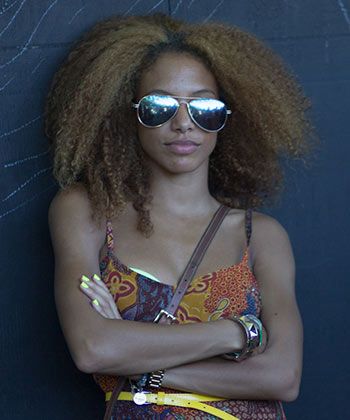 Music
Music
It is challenging to assign a true form of music to the afro when black music is no longer just R&B, Blues or Rap. Black music has surged into new genres and welcomed this change without judgment.
Afro Punk (Indie Rock/ Punk music”> is one genre that many naturals are loving and connecting with (as evidenced by these photos, all taken at Afro Punk Fest”>.
Budgeting
Budgeting is another trend in the catalyst that is the country’s economic slump. The appeal of thrifting, DIY and the makers’ movement is influenced by fashion tastes and eco consciousness in addition to necessity.
The makers’ movement is impacting fashion and design, and naturals have brought DIY to another level with ingredients that most would use for cooking; avocados, honey, olive oil, flax seed… the list could go on forever.
PHOTO POETIC LIFE PHOTOGRAPHY
Political
The word progressive has trumped the word liberal, and although it is hard for many to define and differentiate the two, it appears that most afro wearing black women (and men”> are on the opposite side of conservatives. There is a push for equality for all people regardless of sex, age, race, and sexual orientation.
Now, not all who wear afros or have afro-textured hair fall under these classifications, but these are indicators of what the afro means in 2014. Many sporting the afro would agree that their hair ties closely to their culture and both are openly embraced and appreciated.
So, are afros alternative?
I would say yes it is, and I see it only evolving far beyond a fashion trend. It is tied to our beauty, health, political views, and music. Something so deeply rooted could not possibly be a passing fad but a movement worth watching as it continues to progress and thrive.
PHOTO POETIC LIFE PHOTOGRAPHY
Physical appearance aside, when you neglect your tresses you may find yourself dealing with tangles, brittle hair, and breakage, which in the long-run will be more time-consuming.
Here are a few ways to keep up with the kids and your hair.3 Quick Hairstyles
 Sometimes we have to discuss the not-so friendly problems curly girls may have to deal with from time to time. Not every curly will have to deal with it but if you do, you want to know what to do. I’m talking about head lice.
Sometimes we have to discuss the not-so friendly problems curly girls may have to deal with from time to time. Not every curly will have to deal with it but if you do, you want to know what to do. I’m talking about head lice.
“Head lice, called pediculus capitis by scientists, are small parasitic insects. They live only in human hair, grasping the shaft and feeding once a day by sucking tiny amounts of blood from the scalp. The female louse, about the size of a sesame seed, lays approximately ten eggs, called nits, a day and glues them to the hair shaft. They hatch in 10 to 14 days, grow for nine to 12 days, then mate and the cycle begins again. Lice can live for three to four weeks.” –USA Today
In my experience there is a widespread belief held in the black community that we cannot get lice. While lice do prefer fine, straight hair strands over coarse, curly hair so it is indeed less likely, but lice can still affect every person regardless of race or hair type. One reason is the variety of ways for lice to spread from sharing hair brushes and accessories to touching other people’s hair.
Unfortunately most popular methods for removing lice are conducive to dealing with straight hair with tools like nit ridding combs. Those combs have very tight, small teeth that can wreak havoc on a curly so the following methods are a better option.
Lice removal
Chemicals
If you feel you must use a lice shampoo and remove the nits with that special comb, then do so while the hair is wet. Wet hair is much easier to comb through. Keep a water bottle handy in order to re-wet the hair as it may dry during this lengthy process.
Smothering
Smothering lice with an agent such as olive oil, mayonnaise, or Vaseline is the best method for a curly because it smothers the lice and makes it easier to comb through the curly hair. Olive oil has been lab tested and found to be effective in killing head lice. Allowing the oil to sit in the hair overnight is messy but very effective. Comb through the hair prior to shampooing to get rid of the dead lice and the nits.
Blow-dryer
A blow dryer using direct heat can get rid of nearly 98% of nits and 55% of lice but you should not combine the shampoo method with this one since many have flammable ingredients. This needs to be performed on clean hair and could be paired with the smothering method. High heat is not necessary but it needs to be warm. A bonnet dryer is less effective so use a hand-held blow dryer.
Recommended Method
I suggest saturating your hair with olive oil overnight and combing out the lice and nits before washing your hair. Finish by drying with a blow dryer to best eradicate them.
Sources:
10 Natural Hair Myths


